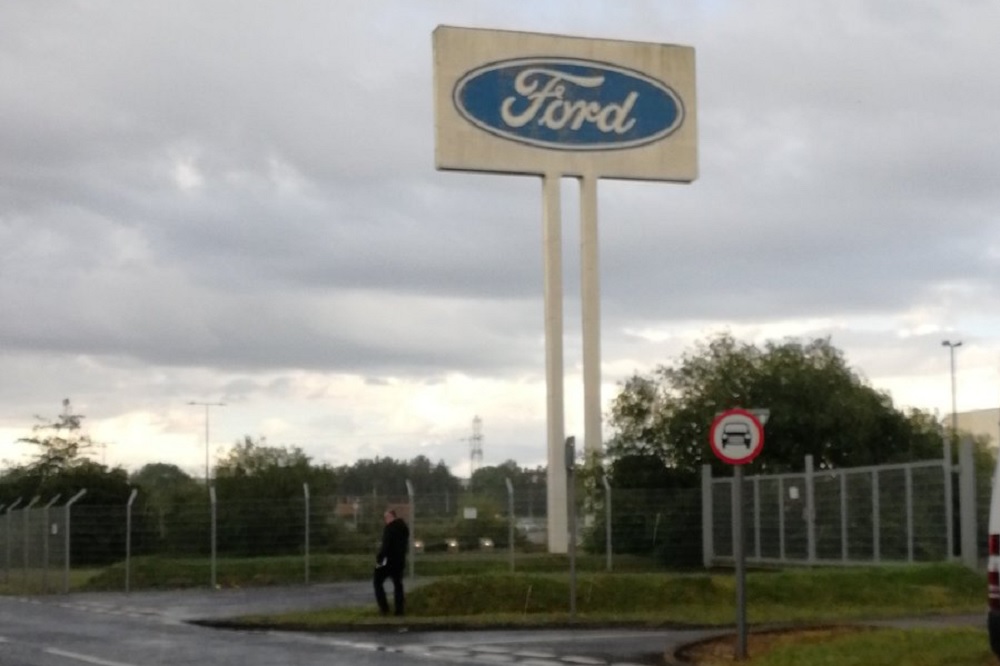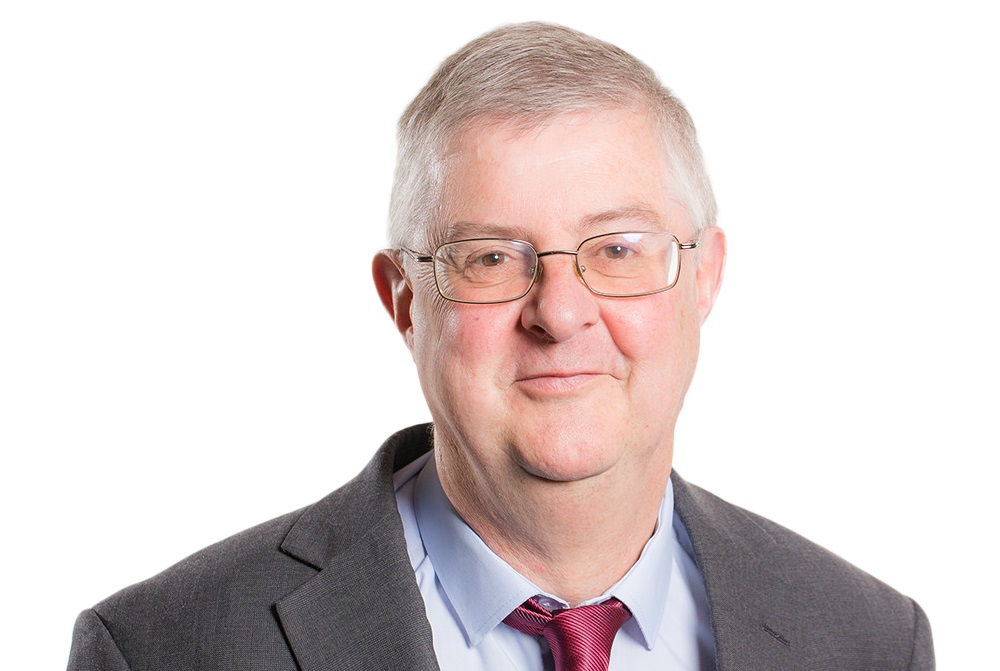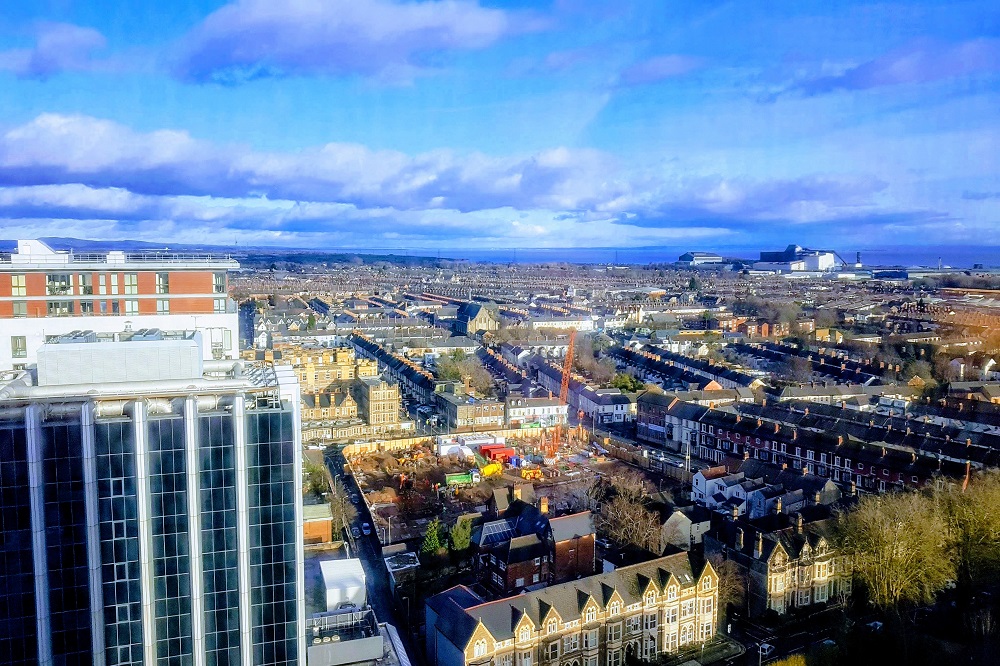Today’s Senedd Roundup: No-deal Brexit fears linked to Ford closure

Owen Donovan, Senedd Home
This afternoon provided the first opportunity for AMs to quiz the Welsh Government over Ford’s announcement last week that they intend to close the Bridgend engine plant in September 2020.
It was the biggest body blow in a black week for Welsh industry, with hundreds of jobs also set to go at Honeywell in St Asaph and Quinn Radiators in Newport.
Ford has “badly let down workers” & Bridgend
Carwyn Jones AM (Lab, Bridgend) – who tabled the emergency question – told AMs the decision was too sudden, likely to have been taken less than a week before the announcement. He suggested the “ramping up” of a No Deal Brexit following Theresa May’s resignation was a significant development. He wouldn’t give up the fight and asked for assurances on Welsh Government assistance.
Economy & Transport Minister, Ken Skates (Lab, Clwyd South) agreed workers had been let down by the manner of the announcement:
Financial advisors would be sent to avoid “sharks” praying on workers with regard pensions and redundancy payments – as had happened at Tata in Port Talbot. A task force has been established to look at future investment opportunities at the site, as well as means to support Bridgend’s economy and companies in the supply chain.
Bethan Sayed AM (Plaid, South Wales West) backed calls for a strike after workers’ mistreatment by Ford, particularly finding out about the closure on social media – Plaid “will be on the picket lines with them”. She called for a broader conversation on business support as well as an economic summit.
The Minister believed Ford should be compelled to “make a substantial legacy investment” into Bridgend and the workforce.
Engines “£600 cheaper to make in Mexico”
Suzy Davies AM (Con, South Wales) cautioned against “overplaying the Brexit card”; while she was in no doubt it will have played a part, there was a bigger picture:
“….it’s £600 cheaper to produce this engine in Mexico than it is in Bridgend, and there should be questions here….about why the conversations between the Welsh Government and the UK Government….didn’t foresee this happening sooner, because one of the things that emerged….over the last few weeks is that Ford was behind the curve on identifying changing tastes within the European market….”
– Suzy Davies AM
The Minister said the possible impact of Brexit shouldn’t be ignored. The Welsh Government has discussed opportunities at Bridgend for some time and at no point did Ford tell them closure was on the table. He added that discussions were taking place with interested parties – without revealing who – and the plant could be used by multiple businesses due to its size.
The Brexit Party’s reaction to the news has been befitting of a party without any policies and that continued with Caroline Jones AM (BXP, South Wales West) who said the news came in spite of a ‘No Deal Brexit’ being discussed for three years. She asked how much Welsh Government money – estimated to be £11million – could be recuperated?
The Minister had this response:
“There’s a line in ‘Jaws’ where the mayor is told by Chief Brody that he’s going to ignore this problem until it comes up and bites him on the derrière, and that, I’m afraid, is what the Brexiteers of Wales are going to do: keep ignoring the problems that a ‘No Deal’ Brexit will cause for the people of this country and our economy until it comes up and takes their jobs from them. That’s when they’ll start bleating about the problems that Brexit is causing.”
– Economy & Transport Minister, Ken Skates
Investing wisely
“The workers did not deserve this….They’ve bent over backwards over the last couple of decades to do every single thing that Ford has asked of them – everything: to increase productivity; to change the way they produce on those lines; to bring new production lines in….Ford owe these workers and they owe these communities.”
– Huw Irranca-Davies AM (Lab, Ogmore)
Shadow Economy Minister, Russell George AM (Con, Montgomery) also focused on the amount of public money given to Ford; the Minister said for the Welsh Government’s £60million investment, £300million a year was generated for the economy.
Andree RT Davies AM (Con, South Wales Central) asked how this would affect proposals for a business park at Brocastle to the south of the plant? The Minister said Brocastle was a strategic site; work was progressing and there were already a number of expressions of interest.
David Rees AM (Lab, Aberavon) said unions believe the redundancy settlements were a “bribe” to accept deals and the decision. He also wondered what the possible tax implications were regarding the payments and whether workers fully understand this?
The Minister repeated that he expected workers to be offered proper financial advice, though he wasn’t able to comment on how much the Treasury could take, suggesting that letting workers keep more of this money could form part of the UK Government’s response.

First Minister’s Questions
70,000 people waiting longer than six weeks for outpatient appointments in north Wales
Leader of the Opposition, Paul Davies AM (Con, Preseli Pembs.), returned to the under-performance of Betsi Cadwaladr health board:
“According to the Daily Post, a freedom of information request found 70,908 people have had to wait more than six weeks for their out-patient appointment. A staggering 27,334 people have had to wait at least 53 weeks…. And let’s look at some other facts, First Minister. Patients attending the emergency department are now waiting, on average, seven hours to get a resolution.”
– Leader of the Opposition, Paul Davies
Paul repeated that special measures were doing little to change the situation and also repeated calls for the Health Minister to resign.
The First Minister said the health board will remain in special measures for however long it’s deemed necessary. He accused Paul Davies of being selective in his figures, as across Wales the proportion of patients waiting longer than 26 weeks for treatment was at its lowest levels since 2018 and therapy waits were 98% lower this March compared to last March.
Opportunities for Bridgend
Adam Price AM (Plaid, Carms. E. & Dinefwr) found it hard to believe the Ford engine plant announcement was that much of a shock given long-standing uncertainty over jobs at Bridgend. Would the Welsh Government now take a leaf out of Scotland’s book – following the closure of the Michelin plant in Dundee – and go and meet Ford’s executives in America?
The First Minister confirmed he’ll be meeting senior Ford Europe executives and discussed Scotland’s approach to the Michelin closure with Nicola Sturgeon.
Adam Price moved on to discuss future uses for the site:
“We know the future of cars is electric, and one of the leading companies in the field is Tesla. It’s opened two gigafactories in the US. It’s looking to open one in China and one in Europe….Elon Musk has specifically said….that if GM closes plants in the US, he’d be interested in taking them over. Could that principle be applied here? Another major company in the field is the Swedish company, Northvolt, which is building a gigafactory producing battery cells with the help of one of the biggest ever investments by the EU’s strategic investment fund and the European Investment Bank.”
– Adam Price AM
The First Minister agreed that all of that was worth adding to the mix of suggestions for the future of the Bridgend plant. The recent announcement that a battery plant will be set up in Port Talbot is a sign Wales is able to attract these kinds of investments.
Are Community Health Councils the voice of the patient, or the government?
Mark Reckless AM (BXP, South Wales East) asked about the levels of autonomy for health boards and community health councils (CHCs). Did the special measures regime strike the right balance between local and central control? He was concerned proposals to change CHCs will lead to more “top-down” bodies “under the thumb of the Welsh Government”.
The First Minister was adamant there would be a greater voice for patients:
“As far as CHCs are concerned, I think we have a proud history in that area. We retained CHCswhen they were abolished across our border, and we’ve always supported them in the work that they do. Now there is an opportunity, in the legislation that will come before the Senedd, to make sure that, with the part that CHCs play in the quality arrangements that we have in the Welsh NHS, we maximise the contribution that those local voluntary people have in being the eyes and ears of patients.”
– First Minister, Mark Drakeford (Lab, Cardiff West)

Photo by Tom Blackout on Unsplash
Committee backs extending prisoner voting rights
Communities Committee
Voting rights for prisoners (pdf)
Published: 11th June 2019
“No doubt many will believe that giving even one more prisoner the vote is a step too far; whilst those who support full enfranchisement will be disappointed we have not been bolder. In recommending the vote for those sentenced to less than four years we have recognised the evidence to our inquiry, public opinion and the different views of Committee members.”
– Committee Chair, John Griffiths AM (Lab, Newport East)
As part of proposed electoral reforms, the Committee was tasked with considering whether prisoner voting rights should be extended. Following a legal challenge, prisoners who are released on licence, are held on remand or have committed certain offences (failing to pay fines, contempt of court) are already allowed to vote.
I outlined my own views at Prisoner Voting: As silly as it sounds?
The arguments in favour of extending prisoner voting rights
- Voting is a right, not a privilege – Apart from the right to liberty, prisoners retain all other rights applicable under the European Convention on Human Rights (ECHR), though voting isn’t an absolute right (so it can be restricted). It was argued that imprisonment alone shouldn’t deprive someone of their right to vote.
- Prisoners remain citizens – The Committee said this is one of the most commonly cited arguments in favour. The Prison Reform Trust told them disenfranchising prisoners suggests they’re not a part of society. So, if we place a value on active participation then denying prisoners a vote undermines that and disadvantages certain groups, particularly ethnic minorities who are over-represented in prisons.
- Extending prisoner voting rights is based on “what’s right” – There are numerous examples of unpopular policies being introduced in Wales, with various public smoking bans being cited. If extending voting rights could help rehabilitation efforts, then despite the unpopularity of the idea it may still be the right thing to do. Several witnesses argued that voting would aid rehabilitation, but no hard evidence was provided to support these assertions.
- Prisoners receive public services and should be able to hold decision-makers to account – Prisoners still use public services like health, social services, housing (when preparing for release) and in some cases have contact with their children’s schools. Prisoners also pay taxes on savings, while those released on licence and in work pay income taxes like everyone else.
The arguments against extending prisoner voting rights
- Voting isn’t an absolute right – As mentioned, interpretations of the ECHR are that voting isn’t a universal or fundamental right and it can be restricted; for example, prisoners serving life and foreign nationals serving prison sentences in the UK can still be denied the vote. Current prisoner votes rules are already compatible.
- There’s little public support for it – In 2017, YouGov polls showed that 60% of people were opposed to extending prisoner voting rights. The Committee accepted that while attitudes have slowly changed in favour, opinions remain divided.
- Voting is part of a “social contract” – People who took part in Committee-commissioned surveys said losing the right to vote was part of a package of punishment alongside the loss of liberty. People breaking the rules of society shouldn’t expect any positive benefits in return – an argument the UK Government made when opposing the legal challenge (though they were unsuccessful).
- Prisoners may not use the right to vote – Prisoners and prison staff both told Committee members that prisoners are highly unlikely to use their right to vote; in the Republic of Ireland turnout within prisons in the first election where they were allowed to vote (2007) was as low as 10% and only 14% of prisoners registered. The figures have fallen further since then.
How extended prisoner voting rights should be introduced
The Committee recommended that prisoner voting rights in Senedd and local elections should be extended to all those serving sentences in Wales of less than four years, as well as 16-17-year-olds being held in custody on the same basis as adult prisoners if/when the voting age is lowered to 16.
Committee members Mohammad Asghar AM (Con, South Wales East) and Mark Isherwood AM (Con, North Wales) disagreed with the Committee’s recommendations.
In terms of practicalities, the Committee recommended that prisoners register to vote in their home constituency (i.e. by using a previous address or a declaration of local connection). Voting would be done by post or by proxy. The Committee didn’t recommend hustings within prisons, though they concluded it would be beneficial for more politicians to visit prisons and speak to prisoners.

Public should be asked to make better choices to cut plastic waste
Environment Committee
Policies relating to plastic pollution & plastic waste (pdf)
“….overall, we are disappointed that the Welsh Government is not getting to grips with the scale of the problem. We shouldn’t wait for others and must take the lead where we can. The public are supportive – we must harness their energy and enthusiasm and bring forward ambitious and transformative policies.”
– Committee Chair, Mike Hedges AM (Lab, Swansea East)
Plastics and microplastics can be lethal to wildlife though their potential effect on humans isn’t fully understood
Plastic doesn’t biodegrade, it degrades into ever smaller pieces (microplastics) after being exposed to UV light. As a result, microplastics in particular are a big threat to marine life as they can be easily eaten, causing gastrointestinal problems and subsequent changes to feeding behaviour – but it doesn’t end there.
Research has found fish which have eaten microplastics are routinely sold as food for human consumption and microplastics are also present in bottled water. There are also difficulties in removing microplastics from wastewater. There’s no clear information yet on what health impacts these might pose for humans; some of the specific chemicals used in plastics are known to pose health risks, but it’s unclear how toxic they really are.
Producers should take greater responsibility for cleaning up plastic waste from their own products
Extended Producer Responsibility is something actively being considered by the Welsh and UK government and was introduced as part of an EU Waste Directive. In effect, it means producers being liable for the clean up/disposal costs and practicalities for waste packaging, which is hoped will reduce the use of unnecessary and un-recyclable packaging.
The Deputy Environment Minister, Hannah Blythyn (Lab, Delyn), said that as the UK government are working on this alongside a deposit-return scheme for plastic bottles, it made more sense to work with them. However, the Committee suggested that if any UK scheme isn’t ambitious enough, a Wales-only scheme should be considered.
Several witnesses said it would be very difficult to introduce a tax – similar to the single-use carrier bag levy – for microplastics as they’re hard to define and it’s hard to find the source responsible for them. The UK Treasury is, however, actively working on introducing a plastic tax from April 2022.
The public can do more to help by making better choices
BBC’s Blue Planet II has been a big help for organisations trying to raise awareness of plastic waste and public opinion has changed as a result – but the momentum needs to continue to deliver long-term results. Also, the problems shouldn’t just be framed as one affecting the marine environment because people will assume it’s something that happens in Asia, not on their own doorstep.
One particular area commented upon by the Committee was the release of microfibres from clothes washing, which could make their way into wastewater. Some tools have been invented to deal with this such as a “guppy bag” and “Cora ball” which capture microfibres from clothes.
Dwr Cymru also told the Committee that non-biodegradable wet wipes caused 2,000 blockages a month in Wales. The Committee recommended the Welsh Government consider measures to “limit access” to non-biodegradable wet wipes and other plastics which enter wastewater and to report back to the Committee within 6 months.

Barriers to use of Compulsory Purchase Orders should be removed to aid regeneration
Economy & Infrastructure Committee
Compulsory Purchase Orders (pdf)
“We all want to see our town centres thrive and for people to choose to cycle and walk wherever possible. When used effectively, Compulsory Purchase Orders (CPOs) can have a real impact in helping Councils to achieve this. However, we know that at the moment local councils rarely use them due to potentially lengthy and costly legal wrangling.”
– Committee Chair, Russell George AM (Con, Montgomery)
The legal landscape of CPOs is “complicated”
While local authorities have a general power to compulsorily purchase land in their respective areas – as long as any resulting development will improve the economic and social well-being of an area – CPO powers also exist in other pieces of legislation specific to certain purposes (i.e. education, highways, libraries).
Current Welsh Government guidance on the use of CPOs is 15 years old and is expected to be revised. The Committee recommends that any revised version make it clear to local authorities the benefits of CPO in order to challenge “negative perceptions” of the CPO process. They also recommend the new guidance encourages two parties involved in a compensation argument to seek proper dispute resolution to avoid legal action.
The Committee suggests following Scotland’s lead by establishing a pre-checking service within the Welsh Government for draft CPOs brought forward by local authorities.
The Welsh Government has clear power over the CPO process, but a new “streamlined” law is unlikely to be introduced before 2021
CPOs were, prior to the Wales Act 2017, known as a “silent subject” – powers which weren’t explicitly devolved to Wales but in practice were because they directly related to devolved areas. The UK Government attempted to reserve/take control of CPO powers in the Wales Act 2017, but the House of Lords blocked it – meaning the Welsh Government now has unquestioned control of CPOs.
A new infrastructure consent process has been out for consultation and it’s proposed a streamlining process could be introduced where CPO confirmation could be delegated to a planning inspector instead of Ministers, as well as making changes to how costs are awarded. However, changes will require a new law and there simply isn’t enough time for this to be introduced before the end of the Fifth Assembly in 2021.
The biggest barrier to the use of CPOs is lack of knowledge and skills
The Committee said that evidence largely suggests the biggest barrier to the regular use of CPOs was a lack of knowledge, resources and recent experience of using them by planning authorities. While the process is usually led by legal experts and solicitors, the number of skilled officers within local authorities has declined as experienced professionals retire.
Witnesses suggested the creation of a central unit could provide relevant expert advice and mentoring – whether that would be within the Welsh Government or as a collaboration between local authorities. The Committee recommended that such a central unit should be established as soon as possible.

Planning authorities “need to explain themselves better”
A Wales Audit Office report on planning authorities (pdf) revealed concerns from the public that planning authorities weren’t doing enough to provide good quality information and were overly focused on single planning applications instead of working to create sustainable communities.
“Based on the findings of this audit, the Auditor General has concluded that Planning Authorities are not resilient enough to deliver long-term improvements because of their limited capacity and the challenge of managing a complex system.”
– Wales Audit Office
70% of people who responded to a survey said planning authorities didn’t do enough to highlight the potential impact of new developments, with the report also highlighting reduced budgets and reduced numbers of planning trainees as having a negative impact on the service.
The Audit Office has recommended, amongst other things, changing the timing and location of planning meetings to encourage greater public engagement; setting planning fees to properly reflect the cost of providing planning services and also providing clear reporting to reduce the number of planning officer recommendations that are overturned (9% of planning decisions in 2017-18).
Support our Nation today
For the price of a cup of coffee a month you can help us create an independent, not-for-profit, national news service for the people of Wales, by the people of Wales.




